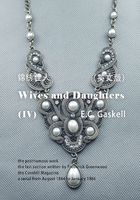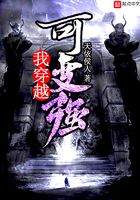To Kenneth Gay
in gratitude for twenty-five years
of patient critical help.
The Homeridae ('Sons of Homer'), a family guild of Ionian bards based on Chios, enlarged their ancestor's first short draft of the Iliad to twenty-four books, and became comprehensively known as 'Homer'. They earned their livelihood by providing good popular entertainment for such festivals as the All-Ionian at Mount Mycale in Lydia, the All-Athenian at Athens, and the four-yearly homage to their patron Apollo at Delos; also, it seems, by going on circuit to various small royal courts where Greek was spoken, from Asia Minor to Sicily, and perhaps even visiting Spain and Western Morocco.
If modem scholars overlook the entertainment motive, dominant in the Iliad, and treat Homer as a Virgil, Dante, or Milton, rather than as a Shakespeare or Cervantes, they are doing him a great disservice. The Iliad, Don Quixote and Shakespeare's later plays are life-tragedy salted with humour; the Aeneid, the Inferno and Paradise Lost are literary works of almost superhuman eloquence, written for fame not profit, and seldom read except as a solemn intellectual task. The Iliad, and its later companion-piece, the Odyssey, deserve to be rescued from the classroom curse which has lain heavily on them throughout the past twenty-six centuries, and become entertainment once more; which is what I have attempted here. How this curse fell on them can be simply explained.
Other professional story-tellers must have been active in Homer's day, but since not a line of their original work, nor any tradition of it, has survived, we are justified in assuming that, like their ancient Irish, Welsh and Gaelic counterparts, they used prose; reserving verse for incidental passages of religious or dramatic importance only, when they took up their lyres and sang what are still called 'lyrics'. It is probable, however, that court poems had been recited in the glorious Mycenaean civilization of Greece, destroyed by the Dorian invasion not long after the fall of Troy; that they had much in common with those of Ugarit, Accadia, Sumeria and the Hittite kingdom; but that, on the destruction of the Greek royal courts at Mycenae, Pylus, Thebes and elsewhere, prose versions of the tales, adorned with numerous poetic tags, passed into the hands of popular story-tellers.
Such story-tellers survived in Ionia until the Christian era, when Apuleius borrowed their 'Milesian tales' for his Golden Ass. Others, called sgéali, still practise in Western Ireland, direct successors of the ancient court bards of Munster and Connaught. One characteristic common to them all is an emphasis on departed glories, power and riches, and a love of magnificent, repetitive, old-fashioned language; thus Homer's Greek idioms were no more contemporary in the mid-eighth century B.C., than is the 'fine, hard Old Irish' of the modern Galway sgéali. But when a renascence of civilization among the Ionic settlers on the coast of Asia Minor finally closed the Dark Ages, which had lasted from about 1050 B.C. to about 750 B.C., Homer put one of these traditional tales back into verse. What is more, he used the new alphabetic script borrowed from the Phoenicians, to record it in writing. Verse made The Anger of Achilles so easily learned by heart, and also exercised so compulsive a charm on his audience (relaxing with wine at their elbows in some royal courtyard), that it became a valuable legacy to Homer's story-telling sons. Their additions are nearly all composed in the spirit of their father, though certain stylistic differences tempt experts to date the various books, or parts of books, from internal evidence.
The dactylic measure which Homer chose may have been an ancient one, since the formal epithets, attributable to Mycenaean days, fit it well; but is less likely to have been used for court epics than for dance-songs around altars. Many of the pastoral, agricultural, and hunting similes which strew the later books and seldom quite suit their contexts, seem authentic festival songs-but of Ionian provenience, because those ruthless lions constantly mentioned in them as preying on flocks and herds were not a feature of Mycenaean Greece, except as motifs in Palace art. The caesuras that break hexameter lines suggest brief pauses for a stamp or clap; and the final spondee, a longer pause announcing a new forward movement.
The Iliad presupposes an earlier story cycle about the events leading up to The Anger of Achilles. These were the birth of Helen from Leda's famous swan-egg; the wedding of Peleus and Thetis; the Apple of Discord, thrown by the Goddess Strife, which provoked the Trojan War by causing the Judgement of Paris and his elopement with Helen; the unsuccessful Greek embassy sent to Troy demanding the surrender of Helen and her treasures-we gather that King Priam refused, on the ground that his aunt Hesione, carried off by Heracles from an earlier Sack of Troy, was still a captive in Greece-the recruitment of heroes for the punitive expedition, their landing at Troy, and the first nine years of desultory warfare. The cycle was versified by Stasinus of Cyprus (whom tradition makes Homer's son-in-law) in the nine books of his Cypria, composed soon after the Iliad. But the Iliad assumes popular knowledge of these legends, as also of The Seven Against Thebes, The Labours of Heracles, and other cycles unconnected with the Trojan War.
Later poets continued the Trojan story, using the same Homeric hexameters: Arctinus of Miletus (Homer's pupil) began his Aethiopis where the Iliad ended, and closed it with Great Ajax's suicide; Lesches of Lesbos, in his Little Iliad, then described the death of Achilles and the departure of the Greeks from Troy. Next came Arctinus' Sack of Troy, and Agias of Troezen's Return of the Greek Heroes. The Odyssey is apparently a rewriting of one such Return. That the Homeridae ascribed its authorship to Homer means only that it formed part of their stock-in-trade, and was written by a poet who, for some reason, preferred to be anonymous.
The traditional corpus of prose tales meanwhile remained in being. Though an authorized edition of the Iliad and Odyssey, published by leading Homeric bards under the patronage of Peisistratus, tyrant of Athens (mid-sixth century B.C.) had given the Homeridae immense prestige, their version of a dramatic event was often rejected by later mythographers in favour of a more popular, and usually more archaic, one. Peisistratus, whose chief adviser Solon travelled widely through the Middle East, saw the advantage of giving his official welcome to a reconstituted Mycenaean epic, which recorded a strong Greek confederacy and could be treated as a holy scripture of the Oriental sort. Since Homer claimed to have been inspired by the Muse; since he glorified Nestor, Peisistratus' ancestor; and since the Homeridae ranked as honorary Athenians-Homer having reputedly been born at Smyrna, a colony of Athens-these revised texts of the Iliad and Odyssey would serve his purpose well enough. The Athenian Theseus cycle survived only in prose; otherwise he might have used that.
Yet though the original Mycenaean court epics must have had much in common with the Accadian Creation epic, the Hittite Song of Ullikummi, the Ugaritic Baal, and similar works, a great gulf separated all of them from the Iliad. Their authors had been endowed Temple priests who set themselves to exalt their gods and praise their rulers, and did not need to think in terms of popular entertainment. Homer, on the other hand, instead of praising his rulers, satirized Agamemnon, High King of Greece and Commander-in-Chief of the Allied Forces before Troy, as a weak, truculent, greedy, lying, murderous, boastful, irresolute busybody who almost always did the wrong thing.
Now, the original High King of the Achaeans was a living god; his palace, a temple; his courtyards, holy ground. He corresponded on equal terms with the High King of the Hittites, a fellow-god. But by Homer's time this religious High Kingship had perished, all the great cities had fallen, and the semi-barbarous princelings who camped on their ruins were ennobled by no spark of divinity. It is clearly these iron-age princes-descendants of the Dorian invaders who drove his own ancestors overseas-whom Homer satirizes in Mycenaean disguise as Agamemnon, Nestor, Achilles and Odysseus; and of whom Hesiod, a late contemporary of Homer's, was thinking when he wrote, in a lugubrious vein, that the divine race of men had been destroyed at ancient Thebes and Troy.
The Homeridae, being sacrosanct servants of Apollo, could risk satire, so long as they remained serene and unsmiling throughout their performances, pointed no finger, cocked no eye, tipped no wink. Homer's wit is at its most merciless in Book 2, when Agamemnon calls a popular Assembly and tests his troops' morale by offering to abandon the siege of Troy. Members of the Privy Council have been warned to shout protests and demand a vigorous assault; but Agamemnon so over-acts his defeatist part that he convinces even himself, and the war-weary soldiers at once rush cheering down to the ships. A fiasco! The Goddess Athene is obliged to intervene. Homer makes Agamemnon superbly ridiculous again in Book 4, when the armistice has been broken and he addresses his wounded brother Menelaus:
'Alas, my poor brother! I fear that the oath which pledged you to single combat in no-man's-land has proved your ruin: the Trojans have broken the armistice and transfixed you with an arrow… I am more than ever assured that Troy's doom is sealed, also that of King Priam the Spearman and his subjects. Zeus, Son of Cronus, indignant at this outrage, will shake his shield threateningly at them from the Olympian throne; thus the armistice will not have been concluded in vain. Nevertheless, I should be most unhappy, brother, if you succumbed to your wound.'
Agamemnon does not send for a surgeon at this point, but continues self-pityingly and once more in a defeatist strain:
'Your death, by removing the cause of war, might set my men clamouring for home-how ashamed I should be to find myself back on the thirsty plains of Argos, having allowed Priam's people to make good their old boast of keeping Helen. Your bones would rot in Trojan soil, and the proud Trojans capering on your tomb would scoff: "I pray the gods that ill-tempered Agamemnon will have no greater success in his other ventures than in this! He has sailed away empty-handed, and noble Menelaus lies here beneath our feet, his mission unaccomplished." Rather let the earth swallow me alive than that they should say such things!'
Menelaus has, however, only been scratched. Battle is resumed, and Agamemnon stalks from contingent to contingent of his army, encouraging the commanders; but merely succeeds in setting their backs up by his ill-chosen phrases. Idomeneus is barely civil; Diomedes preserves a resentful silence; Odysseus and Sthenelus are downright rude to their High King.
In Book 9, Agamemnon's flood of tears and thunderous groans, after a severe defeat due to his own stupidity, introduce further comic scenes. He wakes Nestor, with the odd excuse that he must no doubt be suffering from insomnia. Nestor, courteous though sarcastic, revenges himself by waking everyone else of importance. But for what? He has no idea. Nor has Agamemnon. They solemnly call a Council, and decide to send out a small patrol. Diomedes leads this, and when asked to choose a partner, picks Odysseus as the bravest present; yet he remembers Odysseus' cowardly desertion of him in battle, and Odysseus knows that, unless he redeems his good name, a spear will be driven between his shoulders. He offers Diomedes a half-apology.
Homer is utterly cynical about the Olympian gods. Zeus rules them by fear and cunning, not love, and must keep on constant guard against a palace revolution. In most myth-making societies, what is alleged to happen in the courts of Heaven reflects what happens in the royal palace below; but Homer lets his gods behave far worse than the one royal family to whom he introduces us, namely the Trojan. Priam, in Book 24, may rage at his surviving nine sons as malingerers and playboys who have dared outlive their forty-one heroic brothers; but his curses are doubtless intended to avert Nemesis, and so protect them. On all other occasions the domestic atmosphere in the Trojan palace is irreproachable, despite the presence of Helen, prime cause of their continued sufferings.
Zeus, on the other hand, hurls horrible threats at his wife Hera and the rest of the Olympian family, too well aware of their jealousies, grudges, deceptions, lies, outrages, and adulteries. Hera is a termagant, so cruel and sly that she manages to convert her only virtues, marital chastity and an avoidance of direct lies, into defects. She would like to eat the Trojans raw-and all because, long ago, Paris rejected the bribe she offered for a verdict in her favour, and instead gave Aphrodite the prize of beauty. We are left wishing that Hera would commit adultery with some River-god or Titan, to be taken in the act, and thus compel Zeus to chain her down for ever in the Pit of Hell. Zeus' spoilt daughter Athene shares Hera's grudge against Paris-she also entered for the beauty prize-and Homer does not ask us to approve of her mean behaviour when the lovable Hector at last faces Achilles, a far stronger champion than himself, and she robs him of his advantage. Athene shines in comparison only with the foolish and brutal Ares. Of the three Olympians who come pretty well out of the tale, Apollo the Archer was the Homeridae's patron; Hephaestus the Smith ruled Lemnos, one of the Ionian Islands; and Hermes the Helper had invented the lyre and protected travellers. Then there is Poseidon, whom Homer clearly despises for not standing up to Zeus, and for being so touchy about his reputation as a master-mason; but abstains from ridiculing him because the Pan-Ionian Festival falls under his patronage.
Homer's audiences burned sacrifices to the gods, and celebrated annual festivals; yet they felt, it seems, no more and no less religiously sincere than most cradle-Catholics and cradle-Protestants do today-though supporting their Churches for the sake of marriage and funerals, keeping Christmas and Easter holidays, and swearing oaths on the Bible. Libations and sacrifices, the Ionians agreed, might be useful means of placating angry gods-a splash of wine and the thighbones of the victims on which one feasted cost little-and in the interests of law and order one should never swear false oaths, nor break the sacred bonds of hospitality. But they appear to have lacked any spiritual sense, except such few of them as had been admitted to the Eleusinian, Samothracian, Orphic, or other soul-stirring Mysteries. That Demeter and Persephone and Iacchus, the main figures in these Mysteries, are kept out of Homer's Divine Harlequinade, suggests that he, and his sons after him, were adepts-hence their poor view of official religion.
Perhaps it was the very cynicism of the Iliad and Odyssey that made them acceptable Holy Writ in Peisistratus' day, when the Greeks were already practising free philosophic speculation-Thales was an old man by 560 B.C. Homer soon became the basis of all Classical Greek culture, and when Rome conquered Greece, of all Roman culture too. Nobody could be thought educated who had not studied him under a 'grammarian', and many bright youths knew both his epics by heart. The grammarians (which meant professors of language and literature) discussed Homeric texts with as much zest and minuteness as the third-century rabbis devoted to commentaries on the Pentateuch. Homer was quoted in season and out: an apt reference, however irrelevant to the context, might win a doubtful case at law-where again the rabbinical parallel is tempting. Peisistratus, who claimed prime historical importance for the Iliad, managed to interpolate a line in the 'Catalogue of Ships' by which Great Ajax the Salaminian was credited with beaching his small flotilla at Troy next to the larger Athenian one. This he offered as evidence in a court action against Megara. Athens was laying claim to the Island of Salamis-and managed to fool the Spartan judges.
Athenian participation in the Trojan War, by the way, seems itself spurious. That the material contained in the 'Catalogue of Ships' cannot be reconciled with the main body of the work was once thought a proof of its lateness; but scholars now make it a survival of the earliest tradition. Still, the praise there given to the Athenian contingent and their King Menestheus, 'ablest commander alive, save for old Nestor,' is suspiciously fulsome. (Perhaps it records the gratitude of Ionian refugees from the Dorian terror, who crowded into Athens before sailing to their new homes in Asia Minor, and felt that an Athenian contingent must have fought at Troy.) Thus King Menestheus never figures in Agamemnon's Council meetings, though he has brought fifty ships, and is hardly mentioned outside the 'Catalogue'. In Book 12, he shows little military skill and has to summon Great Ajax. Here his name may have been substituted for that of Idomeneus of Crete; since we learn from a passage in Book 10 that Ajax and Idomeneus' flotillas lay close together at one end of the camp.
The Iliad, though popular throughout Greater Greece in the sixth century, as vase paintings and other works of art prove, earned little reverence until jurists and grammarians treated it as a Bible: for instance, Xenophanes of Colophon (about 500 B.C.) complained of Homer's 'imputing to the gods all that among men is shameful and blameworthy'. But Thucydides, writing about 420 B.C., already discusses Homer as a reputable theologian, if sometimes inclined to figurative language; and it is odd to find the later grammarians of Rhodes, Athens and Alexandria commenting ponderously on passages which were no less satirical, in their tragic way, than Mark Twain's Huckleberry Finn.
When I 'did' Book 23 at my public school, the ancient classroom curse forbade me to catch any of the concealed comedy in the account of Patroclus' funeral games, which distinguishes them from Anchises' tedious funeral games in Virgil's Aeneid. Thus: Nestor, too old to compete in the chariot-race, gives his son Antilochus advice before he drives the Pylian team, confessing that the horses are slow and hinting that the race can be won by gamesmanship alone. Antilochus dutifully spurts to overtake Menelaus in a bad part of the track which, as they both know, will soon become a bottle-neck, and declines to slacken his pace. Menelaus, rather than be involved in a crash, lets Antilochus drive ahead, and cannot afterwards retrieve the lost ground. When Menelaus complains of a deliberate foul, Antilochus voluntarily forfeits his prize, though he has recently saved Menelaus' life in battle. Achilles, as President of the Games, thereupon awards Nestor a consolation prize. Nestor, in a gracious speech of acceptance, tells a long story of how, when young, he won all the events at King Oedipus' funeral games-or all except the chariot-race, in which Actor's sons scandalously jockeyed him. Homer leaves his audience to grasp that Achilles sympathizes with Antilochus, and that Nestor means: 'Yes, we cannot blame my son for boldly putting Menelaus to a test of nerves. It was a different matter at Thebes, long ago, when a rival chariot deliberately crossed my lane and headed me off. Yet my rivals were the Moliones who, though putative sons of Actor, claimed Poseidon, God of Charioteers, as their real father; so, of course, I could make no protest.'
In the subsequent foot-race Antilochus, the fastest runner of his age-group-the early 'twenties-is out-distanced by Odysseus, a man old enough to be his father, but makes a polite comment on the athletic pre-eminence of veterans. In fact, Antilochus purposely lost, to rehabilitate himself as a true sportsman-and this becomes clearer when Achilles shows gratitude by doubling the value of his third prize. Agamemnon then sees an opportunity of winning a prize himself: he enters for the javelin-throw, confident that Meriones, his sole opponent, will have the politeness to scratch. Achilles does not even give Meriones the chance, but sarcastically announces that Agamemnon, the best warrior in the world, may as well take both first and second prizes-a contest would be sheer waste of time!
Nestor, Homer's favourite butt after Agamemnon, can never refrain from boasting of his youthful prowess and, though rated the sagest Councillor among the Greeks-as Polydamas is among the Trojans-consistently gives bad advice which Agamemnon always adopts; whereas Polydamas consistently gives good advice, which Hector always rejects. Thus the Greeks would never have suffered such a heavy defeat on the plain if Nestor, instead of encouraging Agamemnon to act upon the false dream sent by Zeus, had done as Priam later did-tested its truth by demanding a sure augury. Again, the Trojans would never have been allowed to break into the Greek camp, if Nestor had not advised Agamemnon to build a grandiose defence system of rampart and fosse-without also suggesting a sacrifice to placate Poseidon's jealousy. Nor would Patroclus have been killed, had Nestor not advised him to borrow Achilles' armour and fight in it.
When a Trojan arrow wounds Machaon, and Nestor agrees to drive him out of danger, Homer's humour is at its driest. Once back at the Greek camp, they settle down to a refreshing beverage of onion juice, honey and barley-water in a great golden beaker, or tureen, to which the slave-girls add wine flavoured with cheese; and Nestor embarks on a long story of his own youthful adventures at Pylus. He makes no attempt to remove the arrow still protruding from Machaon's shoulder, though after fifty years of warfare he can hardly have avoided picking up a little simple surgery; nor does he send for Patroclus, a competent surgeon who, we know, was not busy at the time; nor does he even return to the battlefield and encourage his hard-pressed troops. He is still droning on when the Trojans swarm over the rampart. Then he hurriedly excuses himself: 'Pray continue drinking, and one of my slave-girls will wash the blood off your shoulder.' Nestor later dishonestly explains his absence from the field as due to a wound; and the Iliad ends with no further mention of Machaon who, for all Nestor cared, may have succumbed.
Menelaus, although despised by his brother Agamemnon, comes well out of the story. Conscious that this bloody war is being fought to avenge the wrong which Paris did him, he shows common sense and dignity, keeping up a steady average of kills in various battles, and has even on one occasion decided to spare a suppliant prince-when Agamemnon, bustling up, officiously murders him. Moreover, Menelaus does not protest against Achilles' usurpation of the army command which, when Agamemnon gets wounded, should be his. Nevertheless, (Book 13) Homer jokingly makes him rage against the Trojans as insatiable in their love of war-as though he had not himself been attacking them for the past ten years-and then plunge back into battle.
Homer treats Achilles with irony rather than humour. Though we are enlisted at the start as this ill-used hero's partisans, Achilles is soon discovered to be the real villain of the piece, who heartlessly watches the massacre of his comrades, just to spite Agamemnon. We believe his assurance to the Assembly that whenever he sacks cities and adds their treasures to the common stock, Agamemnon awards him only a trifle and takes the lion's share himself; later, we find Achilles' hut chock-full of loot-he has been selling captured prisoners as a side-line and pocketing the proceeds. We also believe his assurance to the Assembly that he was sincerely enamoured of Briseis; but when Agamemnon at last repents and offers to surrender her, untouched, together with an enormous compensation for his insults, Achilles tells the envoys that he does not really want the girl-she means nothing to him-and that he despises treasure. (Of course, Agamemnon also lied by pretending to have done no better out of the war than Achilles.)
Achilles' famous love of Patroclus, the kindest-hearted and most unselfish soldier in the Greek camp, proves to be pure self-love which grudges his comrade pre-eminence in battle. Patroclus dies, and Achilles, leaving his body unburied, announces that when he can get a new suit of armour, he will kill Hector and collect twelve Trojan prisoners for a human sacrifice at the pyre. Homer emphasizes Achilles' real object-which is to show that he can outshine Patroclus-when the miserable ghost appears in a dream, altogether uninterested in these barbarous works of vengeance, and complains of the delay. Until his body is duly burned, the Infernal Spirits are refusing him entry to Hades' kingdom, and he must wander from gate to gate, a homeless exile. Achilles answers brusquely that he is doing everything possible to make the funeral a success, and resents having his elbow jogged. Eventually Achilles gets Briseis back, accepts Agamemnon's heavy compensation-though not destined, he knows, to enjoy it-and also insists on Priam's paying a tremendous ransom for Hector's corpse: a transaction which he dishonestly hides from the Privy Council. Nor does he respect Patroclus' wishes by honourably marrying Briseis, but continues to treat her as a convenient bed-fellow and chattel.
***
Homer the satirist is walking on a razor's edge and must constantly affirm his adherence both to the ruling aristocracy, however stupid, cruel or hysterical, and his belief in auguries and other supernatural signs. The most sensible and telling speech at Agamemnon's Assembly, in Book 3, is made by the anti-monarchical commoner Thersites, whom Odysseus thereupon flogs. To dissociate himself from Thersites' sentiments, Homer presents him as bow-legged, bald, hump-backed, horrible-looking, and a general nuisance; but the speech and Odysseus' brutal action stay on record. And Homer's real feelings on the subject of auguries are put into Achilles' mouth-he thinks birds are simply birds and fly about on their own lawful business without divine instruction-for Achilles is angry and despairing and can therefore be pardoned. An inveterate hatred of war appears throughout the Iliad; and Homer smuggles into Book 23 a bitter comment on the monstrous slavery it entails, by awarding the winner of the wrestling match a copper cauldron worth twelve oxen, and the loser a captive Trojan noblewoman valued as highly as four, because she is skilled at the loom.
He feels entitled to modernize elements of the out-of-date tradition which he has inherited-very much as Malory's Morte d'Arthur puts the pre-Christian legends of the Welsh awenyddion (strolling minstrels) into courtly mediaeval dress. Homer distorts his material less than Malory, because he is not working from a foreign language and knows the physical geography of Troy; but can be caught out in frequent inconsistencies. His account of immense earthworks built around the Greek camp adds entertainingly to the legend-it has been suggested that, since the Iliad omitted any Greek assault on Troy, a Trojan assault on these defences was invented to supply the lack-but sometimes he forgets that they are there, and allows free passage between camp and plain. However, for listeners who knew the site of Troy well, he remarks how as soon as the war ended, Poseidon angrily washed away all trace of the earthworks.
Numerous other mistakes occur. At one point a parenthesis explains that, since the beach could not accommodate every Greek ship, the latest flotillas to arrive were hauled up the strand in three rows. Very well: yet when Hector attacks the hindmost row, he sets Protesilaus' flagship on fire-the first vessel, as we have been told, to be beached.
Nor do we ever get a clear battle picture. To earn his slices of fat roast mutton and his cup of honey-sweet wine at court, Homer often had to strain his imagination in describing novel varieties of manslaughter, which he credited to the ancestors of his hosts. Even Agamemnon, from whom the aristocracy of Lesbos claimed descent, was allowed his day of glory (Book 11); though he made as much fuss about a slight wound as though he had been overtaken by the pangs of childbirth. These passages are perfunctory, in the main and, except for the pleasant similes that embellish them, can be skipped without offence to Homer. He is so careless, too, about the names of Trojans killed-Greek sword-fodder-that Erymas, Acamas and Chromius get dispatched twice, and Chromius lives to tell the tale. Books 16 and 17 are a sad muddle as regards time and weather continuity: first sunset, then bright sun and no cloud, then a rainbow, then a thunderstorm, then a long spell of fighting, then night falls. Hence the Latin tag: 'Our good Homer himself occasionally nods.' Yet some of the major discrepancies are inherent in the prose-tradition; thus the Apple of Discord was flung at the marriage of Peleus and Thetis, just before the Trojan War-which Achilles nevertheless joined, mysteriously grown to sudden manhood.
Two main reasons prevented Homer from making his battles realistic. One was that the feats or fates of common soldiers did not interest his patrons, who cared to hear only of duels between noblemen. No man-at-arms ever kills a nobleman, even by mistake; which seems odd, since they are all clad in full armour, with corslets, greaves, helmets and shields. The second reason was that, while light-chariot races were still in vogue, the heavy-chariot fighting described in the story-cycle had gone out altogether by Homer's day. So, though chariot combats occur frequently in the Iliad-Hector even drives a quadriga and orders a couple of mass-charges-the relation of chariotry to infantry remains obscure. Homer feels most at ease when his heroes forget their chariots and fight shield to shield in an unbroken line, so close that their spears almost get entangled. This unbroken line is a post-Mycenaean development of Greek infantry tactics, and implies a changed social organization. The chariot-riding Mycenaean prince-unless he happened to be a Pandarus or Teucrus and fancied himself as a bowman-used a long thrusting-lance, a tower-like figure-of-eight body-shield, and a heavy bronze broadsword. Thus prepared, he challenged enemy nobles to single combat, and his crowd of leather-jerkined pikemen, standing in the background, moved forward only if he fell wounded. (Little Ajax and Amphius wore linen corslets not from sheer foolhardiness, but because they carried body-shields.) The free citizens of Homer's day, however, fought in a close line, like the Roman legionaries, and their weapons were a couple of throwing-spears, an iron stabbing-sword, and a small, round targe with a pointed boss. Archers, slingers, and cavalry supported them. Homer omits cavalry but, though Ajax fights in true Mycenaean style and so at times do Hector and Achilles, he feels obliged to modernize most of the fighting in order to hold his audience; and often cannot decide whether a particular hero is armed with the single lance and body-shield or with two throwing-spears and a targe.
The Mycenaeans buried their noble dead without burning their corpses or their funeral offerings; Homer makes both Greeks and Trojans practise the modern total cremation. The forging of Achilles' bronze shield is described in a way that shows his total ignorance of Mycenaean metallurgy: Hephaestus goes to work as though he were a blacksmith. And simple woodmen wield iron axes, though no iron but the rare and immensely valuable meteoric sort (containing a high proportion of nickel) was known at Mycenae-ore-smelting came in later.
Future events are often anticipated by careful pointers of warning or prophecy. One important pointer is never taken up: Andromache's pre-occupation, in Book 5, with the weakness of the Western curtain, where the wild fig-tree grew, and where Great and Little Ajax, among others, had been pressing their attacks. From D?rpfeld's excavations at Troy, we learn that although the Western curtain would first invite attack, its masonry did not match the other walls. Pindar and his scholiast tell us that only this part of Troy had been built by a mortal-Aeacus, as opposed to the Gods Poseidon and Apollo-and that Aeacus' descendants Great and Little Ajax made their final assault exactly here. The 'Trojan Horse'-according to the Odyssey, not the Iliad, the instrument of Troy's capture-was, Pausanias says, a simple siege engine (perhaps a scaling tower faced with wet horse-hides as a protection against fire?) rather than a secret receptacle for armed Greeks. Which is one of many reasons why I decline to believe that the Odyssey and Iliad are by the same hand.
Troy itself is no fiction; nor is the burning of the city (which archaeologists call 'Troy VIIA') by an expeditionary force of Greeks in the thirteenth century B.C.-1230, not 1287, is the date now favoured. But, though the occasion of the war was perhaps a Trojan raid on the Peloponnese, the cause will rather have been a decision reached by the Aeacids, and their allies, to re-open the trade-route through the Hellespont from which the Trojans had lately debarred them. Achilles was a leading Aeacid, and the Cretan followers of Prince Scamander are named by Strabo as among the founders of Troy; which would explain their descendants' participation in the war under Idomeneus.
A tradition quoted by Hesiod makes Helen's numerous suitors sacrifice a horse at Sparta, stand on its bloody joints, and swear that they will defend the chosen husband against anyone who resents his good fortune. Thus, he says, Helen's rejected suitors organized the expedition against Troy when Menelaus was wronged by Paris. Yet it has been convincingly shown by Professor T. B. L. Webster, in his admirably up-to-date From Mycenae to Homer, that Helen's abduction formed no part of the original Trojan legend; Homer borrowed the tale from some source dependent on the early Ugaritic epic Keret. In the opening lines, Prince Keret mourns that 'his lawful wife surely went away, his rightful spouse, whom he had won with a bride gift, indeed did depart.' Thereupon the God El tells him to besiege Udm and demand the King's daughter Huray-apparently this same lawful wife. Keret does so, and in the end the King of Udm surrenders her, after an attempt to buy him off. Homer's Paris likewise offers to restore with interest the treasures which he has carried off, if he may keep Helen; but this does not satisfy Menelaus.
Professor Webster's discovery of an external source for the Helen-Paris relationship strengthens the contention I made in my Greek Myths:
This is to suggest that the mnēstēres tēs Helenēs, 'suitors of Helen', were really mnēstēres tou hellēspontou, 'those who were mindful of the Hellespont', and that the solemn oath which these kings took on the bloody joints of the horse sacred to Poseidon, the chief patron of the expedition, was to support the rights of any member of the confederacy to navigate the Hellespont, despite the Trojans and their Asiatic allies. After all, the Hellespont bore the name of their own goddess Helle.
In the first nine years of war, the Greeks seem to have blockaded but not besieged Troy, limiting themselves to punitive raids on the Trojan allies all along the Asian coast, and doubtless sailing home every autumn. The unbroken ten-year siege is a dramatic fiction often contradicted by internal evidence: thus Sarpedon the Lycian still has an infant son at home, though he came to Troy with the first allied contingent. And, in Book 11, Othryoneus from [Cilician?] Cabesus has just heard of the Greek landing. The mythographer Hyginus records an earlier legend: that King Priam's allies arrived in the tenth year. Also, excavation proves that 'Troy VIIA' could house no more than two or three thousand men, as opposed to the many thousands mentioned by Homer as having spent the entire war there.
Greek traditional story-cycles contained elements taken not only from the south-eastern Mediterranean-Corinthian myths, for example, often parallel the Book of Genesis-but, like the ancient Irish tales, from Indo-European legend recorded in the Sanscrit epics. Sometimes the similarity of Greek and Irish myths tempts us to reconstruct a lost Indo-European original. Thus the Irish War of the Bulls describes the hero Cuchulain's divine chariot-team, named 'The Grey of Macha' and 'Black Sanglain', which correspond to Achilles' horses Xanthus and Balius and, like them, shed tears of grief. Cuchulain and Achilles both have a charmed spear, each mourns for the death of a blood-brother and fights desperately at a ford; but Cuchulain kills his blood-brother, who has been enrolled by fate among the enemy. The War of the Bulls being far earlier in sentiment and style than the Iliad (though consigned to writing a thousand years later), their common Indo-European original may have been the Mahabharata, before it was heavily and clumsily rewritten, where Karna, son of the Sun-god, possessed a similar weapon and fought his own brother. I make this suggestion because, on the battlefield, Cuchulain and Achilles share the unusual characteristic of shining with a 'hero light' compared to the Sun; and because Cuchulain is held to be a reincarnation of the Sun-god Lugh. When the River-god Xanthus attacks Achilles at the ford, Hephaestus, God of the Forge, rescues him by scorching the riverbanks and making the waters boil. Since the Greek Sun Titan Hyperion never intervened in human affairs, and since Hephaestus' use of coals from his furnace has an artificial ring, we may presume an earlier version of the legend in which the Sun-god came to the hero's rescue.
The weeping of Cuchulain's horses reads far more tragically than that of Achilles' team. The Grey of Macha, who matches Xanthus, defends her master with hooves and teeth; whereas Xanthus does nothing except protest, in a human voice, against Achilles' unjust accusations and foretell his death. Achilles, not at all surprised, returns a harsh answer, ordering the beast to mind his manners; which introduces a comic element, heightened by the appearance of a Fury who stops Xanthus' mouth before he can defend himself.
Another borrowed element in the Iliad, pointed out by Professor Webster, confirms Achilles' close relation with the Sun-god:
In the Iliad the relationship of Achilles and Patroklos may be compared with the relationship of Gilgamesh and Enkidu; and the relationship of Achilles and Thetis with the relationship of Gilgamesh and his mother, the goddess Ninsun. The two passages in the Iliad which come closest to the Gilgamesh epic are both in the eighteenth book. When Gilgamesh visited Ninsun to tell her of his resolve to seek out Huwawa, Ninsun raised her hands to the sun god Shamash and said: 'Why, having given me Gilgamesh for a son, with a restless heart didst thou endow him? And now thou didst affect him to go on a far journey to the place of Huwawa, to face an uncertain battle, to travel an uncertain road.' This is surely the tone of Thetis in the Iliad (18, 54): 'Ah! wretched me, who have born a hero to misery, I bore a son who was blameless and strong… as long as he lives and sees the light of the sun, he is grieved.' When Enkidu dies, Gilgamesh lamented him: 'like a lion he raises up his voice, like a lioness deprived of her whelps. He paces back and forth before the couch'; and later, like Achilles, he prepared an elaborate burial for his friend. In the Iliad (18, 316) the Achaeans lamented Patroklos all night; Achilles began the lamentation, laying his murderous hands on the breast of his friend, groaning deeply like a bearded lion, whose whelps had been stolen by a hunter. The parallel between the two similes is Striking, but the parallel between the double relationships is more striking.'
Now we come to the question of how Homer understood divine intervention in human battle. It is one thing to ascribe natural catastrophes such as earthquakes, pestilence, deaths in childbirth, men or houses struck by lightning, to respectively Poseidon, Apollo, Artemis, and Zeus; or to regard birds as messengers of the gods. It is quite another when these gods adopt human guise-as when Apollo pretends to be Hector's brother Helenus and gives him tactical advice; or when Hermes disguises himself as Achilles' squire and guides Priam safely into the Greek camp. This is a graphic way of saying that the human hero was inspired, though he kept his familiar appearance; the divine kings of Mycenae and the Middle East were constantly represented by epic-writers and on monuments as being so favoured by their deities. When, however, a god stands at the side of a chosen champion, other than a divine king, and helps him to victory-as Athene did for Diomedes and Ajax, or as Apollo did for Paris when he killed Achilles (a deed, by the way, only prophesied, not performed in the Iliad), this seems more like divine possession than divine inspiration. Though by Homer's time, such a possession had evidently ceased to be an everyday occurrence, he has preserved occasional details which make it recognizable.
Both divine inspiration and divine possession occur in West African cultures of Libyan origin; and the Libyan element in pre-Hellenic Greek myth is large: Athene herself, whom Herodotus identifies with the Libyan Goddess Neith, was born on the shores of Lake Triton, near Gades. A mortal inspired by a god's or a goddess' kra (soul), is unchanged in appearance, though he may be speaking and acting as the deity dictates. Possession by a divine sunsum (personality), on the other hand, leads to behaviour peculiar to the god or goddess concerned. Each god has his well-known character and mannerisms. In Dahomey, for instance, the local Hermes is sly, smooth, eloquent, amusing, dishonest, sympathetic, hating personal violence; the local Aphrodite is amorous, coquettish, bountiful, soft-hearted, shrewd, subtle, and unsporting. When at a festival, under the excitement of drums and dancing, some member of the tribe becomes possessed by a divine sunsum, he or she loses consciousness, adopts the character of that particular god, and is temporarily granted divine honours. An authoritative account of the same phenomenon, transplanted from Dahomey to Haiti, is given in Maya Daren's Divine Horseman.
The sunsums of the Olympians had been established by ancient Greek myth; so that, if a hero were possessed, it would be at once apparent which deity was riding him. Ares, the War-god, a great, tough, swaggering warrior, relied on main force, heavy spear-thrusts and crushing sword-swings; perhaps heroes mentioned in the Iliad as 'Ares' favourites', or 'descendants of Ares', were susceptible to his possession. Diomedes, in Book 5, fears to face Hector because Ares is with him; but on another occasion, Diomedes has been himself possessed by the Goddess Athene, and Hector prudently avoids an encounter. Among the ancient Greeks, as among the pagan West Africans and loa-worshipping Haitians, a man could be possessed by a goddess, or a woman by a god. The Pythoness at Delphi, or the Sybil at Cumae, who were possessed, not merely inspired, by the God Apollo, assumed his voice and demeanour. Athene, the Amazonian goddess, evidently had a more and deadly battle technique than Ares because, whenever two warriors met, one inspired by Athene, one by Ares, Athene always won; two combats between these deities-or their chosen incarnations-are given in the Iliad. Hector remarks that fighters have their off-days or their days of triumph, according as Heaven wills. Thus Aeneas, possessed by Aphrodite, is easily defeated by Athene's incarnation Diomedes, after apparently suffering the hand wound which Homer attributes to Aphrodite herself; but makes good his escape. Later, the strong God Apollo possesses him, and he lops down his opponents like pines. But the Greek gods never became bisexual, as their West African counterparts did.
The most interesting case of possession in the Iliad is that of Paris, Aphrodite's favourite. When he fights Menelaus, then aided by Athene, he only just manages to extricate himself with Aphrodite's adroit help and escape to Troy. Afterwards, Hector visits him at his house and calls him back to fight, saying sarcastically: 'I cannot regard your grudge against Troy as a very decent one; it is for you alone that our people are dying to defend these walls.' Paris, still under Aphrodite's influence, gives a characteristic answer: 'Sharp words, but not unreasonably so. Allow me to explain that I bear no particular grudge against Troy, but feeling a little sad, I wanted to enjoy a good cry on the chair in this bedroom. My wife has just suggested that I should fight again, and I am taking her advice; because one never knows who will win the next round, does one?' That same day, Paris saves the situation, not by some tremendous lunge with a spear, or cast with a boulder, but by an unsporting arrow-shot, from behind cover, that pins Diomedes' foot to the ground and disables him for the rest of the battle. Paris' laugh is the merry laugh of Aphrodite, and Diomedes' answer carries all the venom proper to Athene.
Homer clearly disbelieves the legends of gods taking part in human affairs, but is always ready to extemporize divine machinery. Since a 'tomb of Sarpedon' was shown in Lycia, whereas the Trojan cycle made him fall in battle, Homer obligingly arranges an aerial transfer of the corpse back to Lycia, at Zeus' own orders. It is reasonable to suppose that he has also altered the ancient account of how Paris killed Achilles. Aphrodite, rather than Apollo, will have guided the arrow that pierced the famous heel since, according to most mythographers, Achilles fell not at the Scaean Gate, but in Apollo's temple, where Deiphobus had lured him-after posting Paris behind a pillar. Apollo would hardly have so defiled his own shrine. Aphrodite seems to have been a far more important character in the original story-cycle than in the Iliad. The Homeric Returns of the Heroes, clearly based on Mycenaean tradition, makes every Greek leader of note either return home to find his wife unfaithful, or be shipwrecked.[1] Before Poseidon, fairly late in religious history, converted his thunderbolt into a trident and exchanged sweet waters for salt, Aphrodite ruled the Sea as well as human passions; and her alternate forms of revenge for the destruction of Troy yield far better sense than Poseidon's idle spite, to which, though he championed the Greek cause at Troy, these disasters are implausibly ascribed.
***
Students (lamentably few, nowadays) who read Homer in the original have several competent cribs to guide them. Professor Richard Lattimore's The Iliad of Homer is the latest; he and Professor Webster make a reliable team. I approve of cribs, but dislike all the translations I have yet read. Translations are made for the general, non-Classical public, yet their authors seldom consider what will be immediately intelligible, and therefore readable, and what will not. Homer is a difficult writer. He was breaking new ground, and often failed to express a complex idea adequately in hexameters; he also omitted many vital pieces of information, or inserted them too late. Few translators save Homer's face by remedying these defects, or soften the wearisome formality of phrase which slows down the action:
'So said the White-armed Goddess Hera, and the Owl-eyed Goddess Athene disregarded not. So Hera the Goddess-queen, daughter of Great Cronus, went her way.'
Is it necessary for Hera to be called 'White-Armed, Queen, Daughter of Great Cronus', or Athene 'the Owl-Eyed Virgin Daughter of Zeus' more than once or twice in every book? Surely; 'Athene took Hera's advice' is enough? And what can the uninstructed reader make of 'Alalcomenean Athene'? Should he not be told that Zeus, who gave her this title, was teasing, and that she resented having been put under the charge of a human tutor named Alalcomenes the Boeotian?
Paradoxically the more accurate a rendering, the less justice it does Homer. Here is a typical passage from Book 6 of Professor Lattimore's version:
Bellerophontes went to Lykia in the blameless convoy of the gods; when he came to the running stream of Xanthos, and Lykia, the lord of wide Lykia tendered him full-hearted honour. Nine days he entertained him with sacrifice of nine oxen, but afterwards when the rose fingers of the tenth dawn showed, then he began to question him, and asked to be shown the symbols, whatever he might be carrying from his son-in-law, Proitos. Then after he had been given his son-in-law's wicked symbols first he sent him away with orders to kill the Chimaira…
In other words:
The Olympians brought Bellerophon safe to the mouth of the Lycian River Xanthus, where Iobates received him splendidly: the feasting lasted nine days, and every day they slaughtered a fresh ox. At dawn, on the tenth day, the time came for Iobates to inquire: 'My lord, what news do you bring from my esteemed son-in-law Proetus?' Bellerophon innocently produced the sealed package, and Iobates, having read the tablets, ordered him to kill the Chimaera.
***
A few years ago, before translating The Golden Ass from Apuleius' over-ornate Latin, I decided to give it a new lease of life by using a staid but simple English prose. I cannot do quite the same here, because Homer wrote in hexameter verse, and though perhaps nine tenths of it is historic narrative, there remain certain dramatic and lyrical occasions. A solemn prayer, a divine message, a dirge, or a country song disguised as a simile-they sound all wrong when turned into English prose: just as wrong as when muster-rolls and long, detailed accounts of cooking a meal or harnessing a mule are kept in verse. Modern audiences are sharp-witted and more easily bored than Homer's; and since the printing press has almost abolished illiteracy in the West, novels or histories need no longer be clothed in regular metre to make them easily memorized; nor do English versions of the Iliad. Broken metre, which some recent translators adopt, seems to me an unfortunate compromise between verse and prose. I have therefore followed the example of the ancient Irish and Welsh bards by, as it were, taking up my harp and singing only where prose will not suffice. This, I hope, avoids the pitfalls of either an all-prose or an all-verse translation, and restores something of the Iliad's value as mixed entertainment. But so primitive a setting forbids present-day colloquialisms, and I have kept the diction a little old-fashioned. At times, I incorporate footnotes into the text, but only when the sense is deficient without them; and shall now pour a libation of clear red wine to Homer's shade, imploring pardon for the many small liberties I have taken. He will perhaps grant my plea, despite protests from his loyal grammarians.
Deyá,
Majorca,
Spain R.G.















